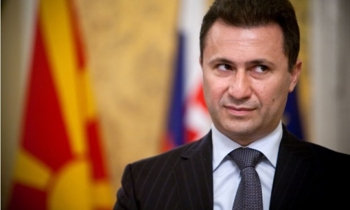PARIS: The European Commission formally proposed broadcasting rules Tuesday that could impose new standards for online companies and shake up advertising standards by allowing product placements.
The proposals, which many interest groups have criticized, are years away from approval, as they face major tests before the European Parliament and must also be approved by the European Union's 25 national governments.
Called the Television Without Frontiers Directive, the rules are a revision of standards dating back to 1989, when there were far fewer television channels competing for advertising revenue.
"My aim is for Europe's audiovisual content industry to flourish under one of the most modern and flexible set of rules in the world," said Viviane Reding, the commissioner for information. "The new rules should open up multimedia opportunities, boosting competition and consumer choice, while promoting public interest objectives such as the protection of minors and cultural diversity."
The proposal submitted on Tuesday was not much different from draft versions that were circulated in the last few weeks. The only substantial change was that advertising breaks will be allowed once every 35 minutes for films, news and children's programs, according to Reding's spokesman, Martin Selmayr. Presently there is a 20-minute gap between advertising breaks, except for films, where the breaks must be at least 45 minutes apart. Broadcasters had long sought more flexibility for ad breaks.
The new directive redefines broadcasting, dividing the media into two categories labeled "linear" services, for traditional television with a controlled schedules, and "nonlinear" offerings, like Web television or mobile telephone programming, which viewers can watch at their own pace.
Much to the dismay of some consumers' groups, the new standards clarify existing EU rules to permit product placement advertising, which is banned outright in countries like Britain, Germany and France but is legal in the United States. Product placements will still be banned from children's and news shows, but they will be permitted on other types of programs, with a requirement that the names of advertisers be disclosed at some point during the shows.
The Writers Guild of America is seeking a similar disclosure requirement in the United States, where product placement advertising has proliferated on reality shows and has even started shaping some story lines.
By liberalizing product placement advertising, European government officials say they hope to give a competitive lift to the local audiovisual industry. They are conscious of growing revenue in the United States, with some studies showing that product placement advertising there has been rising by an average of 21 percent annually since 1999.
But public broadcasters like the BBC have qualms about allowing product placement in television programming.
"If you open the dam of allowing product placement," said Matteo Maggiore, head of European affairs for the British state broadcaster, "it could risk compromising the trust that people have in the media, even if a script was not changed to accommodate a certain product. We think this would be a bad development."









